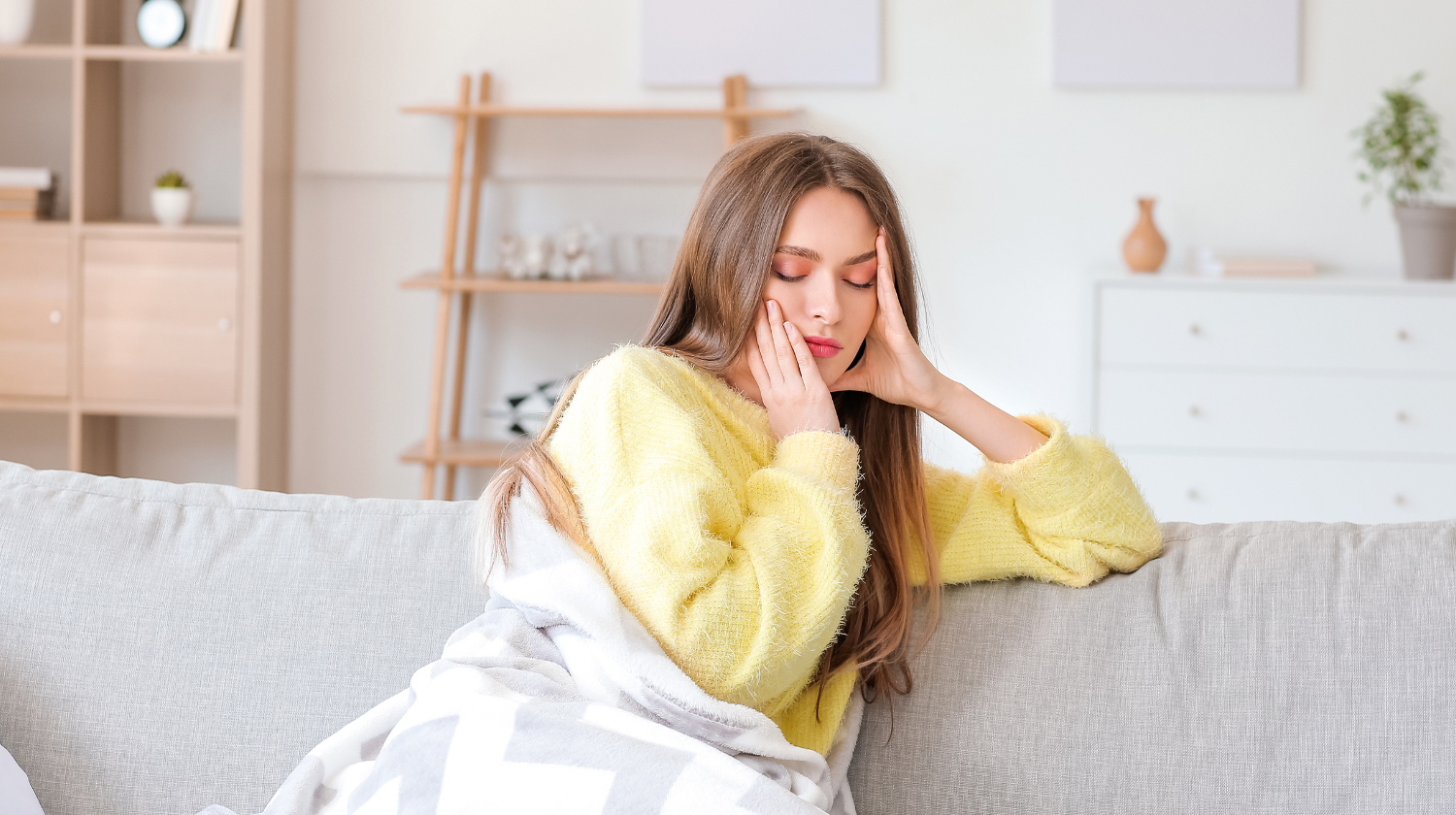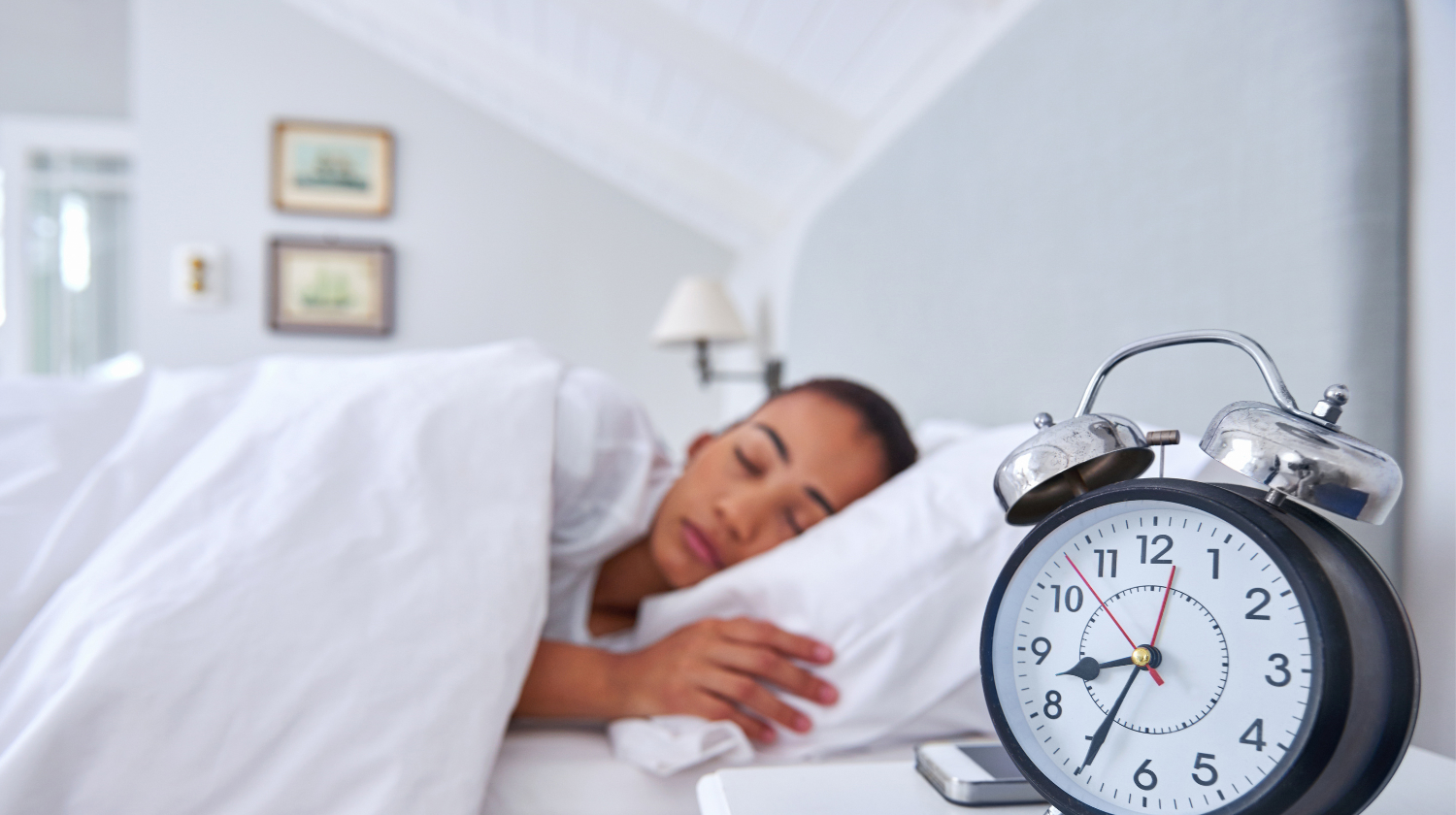Sleep Deprivation Stages & How It Affects Your Body 2024

Sleep is a physiological need. People must sleep to rest and recover energy to function optimally the next day. When someone cannot sleep, they can have both physical and emotional problems. People who sleep too little or not enough sleep may have sleep deprivation.
Sleep deprivation can affect many people for various reasons, some related to stressful situations that make the person unable to sleep and others related to an illness. Knowing the causes and symptoms of sleep deprivation stages can help people identify if they suffer from it and how they can manage it.
What Are The Stages Of Sleep Deprivation?
The stages of sleep deprivation are based on the number of hours someone goes without sleep, which are:
- Stage 1: 24 Hours of No Sleep
- Stage 2: 36 Hours of No Sleep
- Stage 3: 48 Hours of No Sleep
- Stage 4: 72 Hours of No Sleep
- Stage 5: 96+ Hours of No Sleep
What Is Sleep Deprivation?
Sleep deprivation is when a person cannot sleep or sleeps inadequately. Those who are sleep deprived[1] have trouble sleeping, and they are unable to rest even when trying to sleep, which can affect their performance during the day.
The amount of hours people need for good sleep quality varies according to their age, health, and life circumstances. Among adults, 7-9 hours of sleep is recommended,[2] while for children and teenagers, the range is 8-12 hours, depending on their age. Newborns need 14-17 hours of sleep. And sleep deprivation occurs more frequently among males than females.
The reasons why people may be sleep deprived are different. Some people have trouble sleeping because of poor sleep habits, such as the consumption of alcohol, caffeine, or large meals before bedtime. Some people have disorganized lifestyles, work irregular hours, and not having an established sleep routine. People who suffer from a mental disorder[3] that can affect sleep, such as sleep disorders, anxiety disorders, or depressive disorders, may suffer from the effects of sleep deprivation.
Sleep deprivation and insomnia are similar but have subtle differences, and some researchers use the terms interchangeably. Insomnia is the inability to go to sleep, remain asleep, or go back to sleep if they awake during the night. Sleep-deprived people do not get enough sleep because they work shifts at night, stay up late in bed, or have poor hygiene habits. In other words, they have voluntarily created a lifestyle that causes them not to get enough sleep.
Stages Of Sleep Deprivation
Sleep deprivation has several stages,[4] affecting each person differently. Knowing the stages of sleep can help people identify which stage they are in and what steps to take. When does sleep deprivation start? It starts with stage one.
Stage 1: 24 Hours Of No Sleep
Those who go 24 hours without sleep may experience certain symptoms but not as severe. They are likely to feel tired and have trouble concentrating the next day. They may feel stressed and irritable because they didn’t get any sleep and react sluggishly.
People with more than 18 hours without sleep may experience the equivalent of 0.0.5% alcohol in their blood. It is dangerous for these people to drive or perform activities that require a lot of attention as they will have trouble executing them.
Stage 2: 36 Hours Of No Sleep
People who have more than 36 hours without sleep may feel the above symptoms worsen. Lack of concentration increases fatigue and the desire to eat more. Those who consistently go this amount of time without sleep are at increased risk for cardiovascular disease.
Stage 3: 48 Hours Of No Sleep
In this stage, sleep-deprived individuals will continue to experience the symptoms of the previous stages and short periods of microsleep. Microsleep means that people fall asleep for seconds at a time and are in a state like when they are sleeping.
People in this stage may feel more irritable, with a deteriorating immune system. Concentration problems remain more pronounced, and confusion remains present.
Stage 4: 72 Hours Of No Sleep
The above symptoms become severe for those experiencing this stage. Not only do people have problems with mood and concentration, but cholesterol levels begin to rise.
Increasingly, the need for sleep is latent. People in this stage may experience hallucinations and thought disorders.
Stage 5: 96+ Hours Of No Sleep
People who go more than four days without sleep may experience life-threatening symptoms. Those who go this long without sleep may experience psychotic symptoms. Hallucinations[4] are more present; reality is distorted, and psychosis may develop, accompanied by heart problems.
Sleep Deprivation Symptoms
Those with sleep deprivation may experience symptoms like concentration problems and impaired cognitive functions.[5] They find it difficult to concentrate when performing any task, such as driving or doing a task at work.
Irritability is common. Those who do not sleep may experience anger the next day because they could not get adequate rest and may not be able to be verbally expressive in a socially acceptable manner due to the extreme tiredness they experience.
Those who are sleep deprived may have blurred vision and drowsiness during the day and may fall asleep for seconds at a time anywhere. It is possible for a person to be driving and be so tired that they close their eyes and risk a motor vehicle accident.
Hallucinations, disorientation, cholesterol problems, weight gain or loss, and mental disorders such as anxiety and depression are present in those suffering from sleep deprivation.
How Sleep Deprivation Affects Your Body
Sleep deprivation affects the body differently. Those who have trouble sleeping for several days tend to have a weaker immune system,[6] which makes them more prone to certain diseases.
Heart problems, high blood pressure, obesity, and serious injuries are more likely to occur in those who experience severe symptoms of sleep deprivation. People may experience irregular heartbeats or arrhythmias and, in turn, may be more likely to develop a heart attack. People are also more likely to gain weight due to insufficient sleep, which causes them to want to eat more[7] as a way to manage the anxiety associated with their disrupted sleep cycle.
The chances of developing diabetes are higher. Sleep-deprived people may have trouble getting their bodies to convert sugar into energy,[8] which is a danger to high blood sugar levels.
Psychologically, people who have trouble falling asleep are more likely to develop anxiety disorders and depression. Chronic sleep deprivation can lead people to become anxious and desperate for sleep. Depression may develop, and sleeping problems can often be a symptom of depression.
How To Treat Sleep Deprivation
Sleep deprivation is treatable. Some actions to take are:
Visit A Physician To Identify Organic Causes

In some cases, sleep problems may be associated with a physical cause, so seeing a doctor is essential. A doctor may order routine tests to address sleep deprivation and to see if any serious health consequences may be affecting your sleep. This is important as it helps to rule out any illnesses and thus help with further treatment.
Suppose you have been having excessive daytime sleepiness or have chronic sleep deprivation. In that case, you might also want to visit a sleep specialist or a psychologist to rule out any mental health disorders such as anxiety or depression.
Depending on the diagnosis, some people may be advised to take prescription sleeping pills or OTC melatonin or magnesium. The body’s natural melatonin production helps regulate the sleep-wake cycle. Some supplements containing these sleep nutrients are safer than prescription sleeping pills and may help you avoid sleep loss by regulating your circadian rhythm.
If a person is diagnosed with any mental health concerns, the doctor in charge will prescribe medications focused on calming the symptoms, aiming to help the person develop better sleep patterns. Psychological therapy will help the person work through the problems they are having that may be influencing the reasons they are unable to sleep. Those who experience anxiety may have trouble sleeping because of excessive worry, anxiety, and unrealistic fear perceptions.
Have An Established Sleep Routine

Many times, those who have trouble sleeping do not have a consistent sleep schedule. Having a bedtime routine helps the body to get used to it and rest better because it assimilates when it is time to rest. It may be difficult at first to set a schedule if it’s an unfamiliar habit, but as the days go by, the habit will form and become a routine.
Taking micro naps in the afternoon can help to recover energy. Occasionally people may try to sleep for 3 to 4 hours to regain energy, but sleeping during the day can worsen sleep deprivation. It is suggested not to take naps close to bedtime as this may cause problems falling asleep later.
Create An Organized Lifestyle

Many times, constant stress, not eating correctly, and not having good sleep hygiene can lead to the person not resting properly, so you must implement changes in your life to avoid serious health consequences of long-term sleep deprivation. Reducing stress involves identifying its causes, prioritizing health, eating healthy, and sleeping at a set time.
Having an organized home with tidy surroundings and a comfortable sleeping area free from distractions can help you sleep better. Changing the sheets, purchasing a new mattress if your old one is uncomfortable, darkening the room, and turning off electronic devices can help achieve a proper sleep environment.
Final Thought
Sleep deprivation can affect anyone and for different reasons, but many of them are under our control. Staying awake to study or because you are living in a chaotic, disorganized environment that has led to poor sleep habits is under our control.
Poor sleep habits with extreme sleep deprivation can affect people’s functioning to the point of developing adverse medical conditions such as high blood pressure. It is important to recognize the early stages of sleep deprivation so you can take the necessary measures so that this problem does not worsen. Treating sleep deprivation involves creating routines, maintaining order, establishing a consistent sleep schedule, and avoiding caffeinated beverages and alcohol, which will help people to restore a healthy sleep cycle.
+ 8 sources
Health Canal avoids using tertiary references. We have strict sourcing guidelines and rely on peer-reviewed studies, academic researches from medical associations and institutions. To ensure the accuracy of articles in Health Canal, you can read more about the editorial process here
- Medic, G., Wille, M. and Michiel E. H. Hemels (2017). Short- and long-term health consequences of sleep disruption. [online] Volume 9, pp.151–161. doi:https://doi.org/10.2147/nss.s134864.
- CDC (2022). How Much Sleep Do I Need? [online] Centers for Disease Control and Prevention. Available at: https://www.cdc.gov/sleep/about_sleep/how_much_sleep.html.
- Columbia University Department of Psychiatry. (2022). How Sleep Deprivation Impacts Mental Health. [online] Available at: https://www.columbiapsychiatry.org/news/how-sleep-deprivation-affects-your-mental-health.
- Waters, F., Chiu, V., Atkinson, A. and Jan Dirk Blom (2018). Severe Sleep Deprivation Causes Hallucinations and a Gradual Progression Toward Psychosis With Increasing Time Awake. [online] 9. doi:https://doi.org/10.3389/fpsyt.2018.00303.
- Deepalakshmi Kaliyaperumal, Yaal Elango, Murali Alagesan and Iswarya Santhanakrishanan (2017). Effects of Sleep Deprivation on the Cognitive Performance of Nurses Working in Shift. [online] doi:https://doi.org/10.7860/jcdr/2017/26029.10324.
- American Academy of Sleep Medicine – Association for Sleep Clinicians and Researchers. (2012). Sleep deprivation effect on the immune system mirrors physical stress – American Academy of Sleep Medicine – Association for Sleep Clinicians and Researchers. [online] Available at: https://aasm.org/sleep-deprivation-effect-on-the-immune-system-mirrors-physical-stress/.
- Hogenkamp, P.S., Nilsson, E.K., Victor, Chapman, C.A., Vogel, H., Lundberg, L., Sanaz Zarei, Cedernaes, J., Rångtell, F.H., Broman, J.-E., Dickson, S.L., Brunstrom, J.M., Benedict, C. and Schiöth, H.B. (2013). Acute sleep deprivation increases portion size and affects food choice in young men. [online] 38(9), pp.1668–1674. doi:https://doi.org/10.1016/j.psyneuen.2013.01.012.
- Eric Jay Daza, Katarzyna Wac and Marily Oppezzo (2019). Effects of Sleep Deprivation on Blood Glucose, Food Cravings, and Affect in a Non-Diabetic: An N-of-1 Randomized Pilot Study. [online] 8(1), pp.6–6. doi:https://doi.org/10.3390/healthcare8010006.



